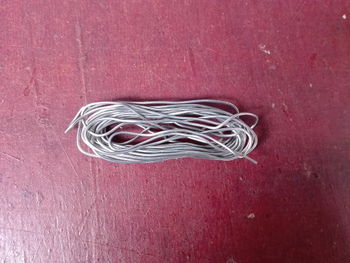Solder
 |
This article is a stub. Please help Sciencemadness Wiki by expanding it, adding pictures, and improving existing text.
|
Solder is a fusible metal alloy used to create a permanent bond between metal workpieces.
Contents
Composition
Classical solder consists of a tin-lead alloy in various proportions, the most of often being 60/40.
Lead-free solders use copper, bismuth, silver, zinc, gallium, indium, antimony instead of lead, at various percentages.
The percentage of each metal varies, depending on the desired properties of solder.
Properties
Soft solder typically has a melting point range between 90 to 450 °C, and is commonly used in electronics, plumbing, and sheet metal work. Alloys that melt between 180 and 190 °C are the most commonly used. Soldering performed using alloys with a melting point above 450 °C is called "hard soldering", "silver soldering", or brazing.
The thermal conductivity of common solders ranges from 32 to 94 W/(m·K), and the density from 9.25 to 15.00 g/cm3.
Availability
Solder can be bought from all electronics stores and are also available in many hardware and home-improvement stores.
Can also be bought online.
Projects
- Solder electronics
- Source of tin
Handling and safety
Solders containing lead are harmful.
Molten solder may cause burns to exposed skin.
